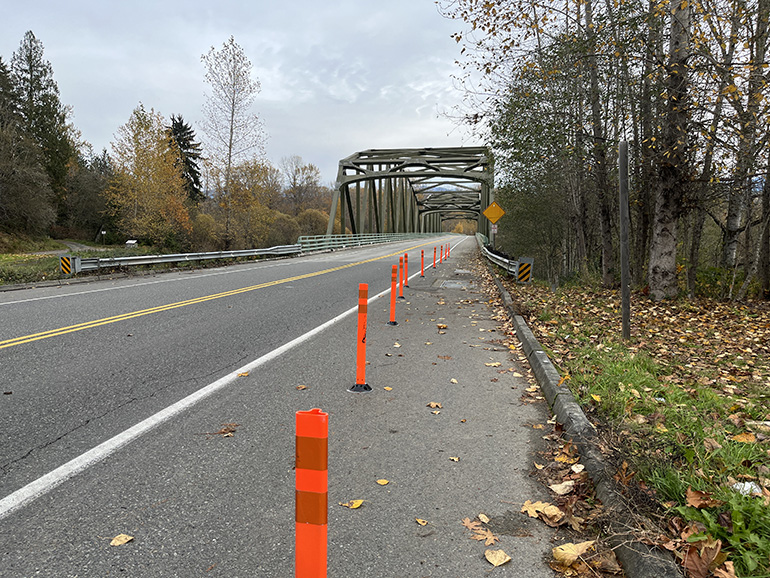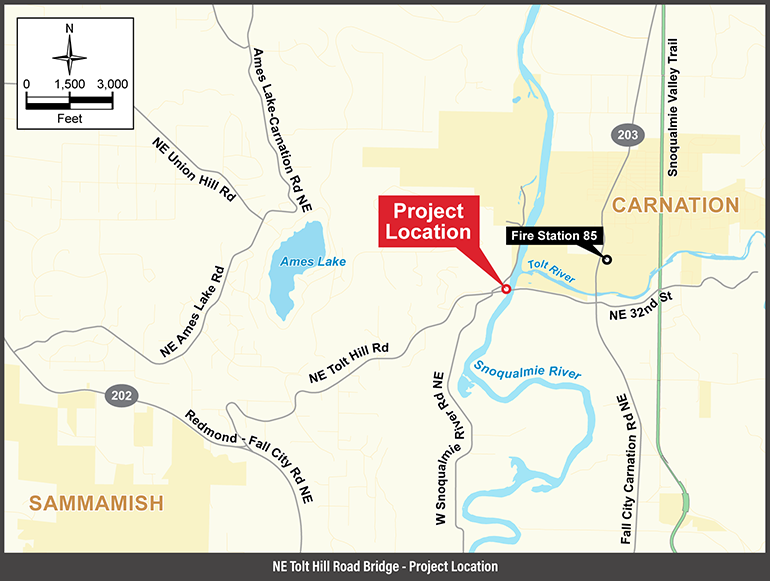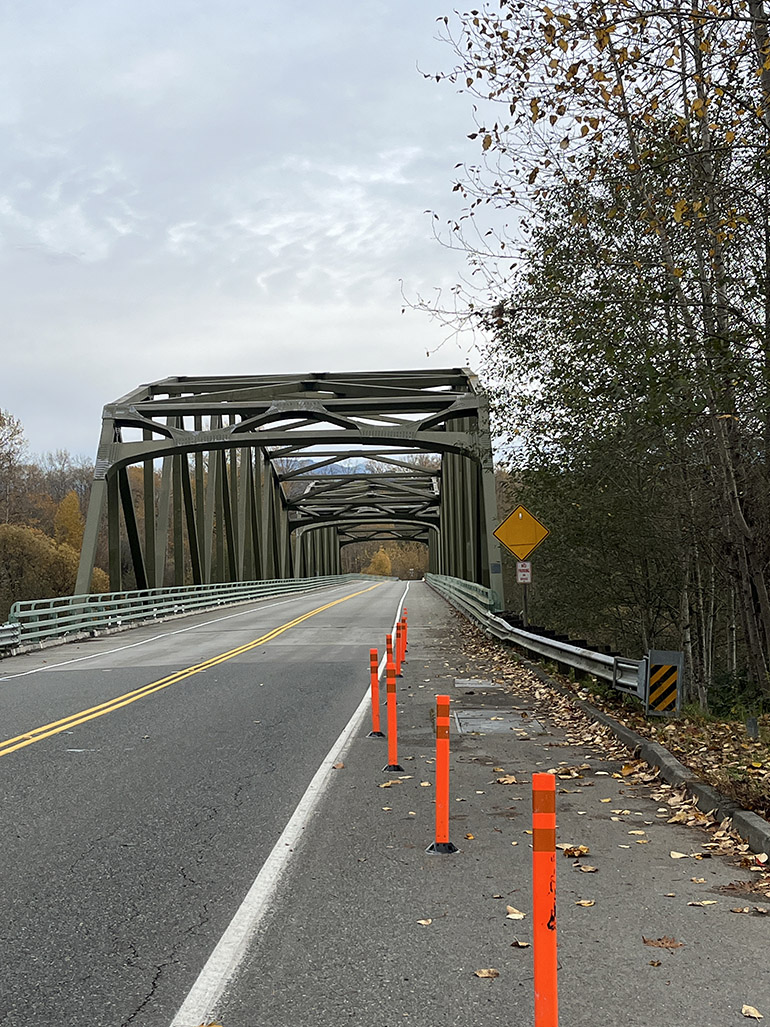NE Tolt Hill Road Slide Repair Project

King County Road Services will replace a damaged retaining wall supporting NE Tolt Hill Road west of Carnation, WA. The new wall will better stabilize the road and hillside under the west approach to the bridge. Currently, orange traffic cones are in place to block vehicles from using the shoulder of the bridge directly above the existing wall. Once the project is complete, the current restriction on the south shoulder will be removed.
Overview
Road Services is replacing the existing and damaged retaining wall with a new deep retaining wall that is designed to prevent erosion and will provide better protection for flood events. This project will improve safety for travelers and restore the stability of soil under the west approach to the Tolt Bridge, over the Snoqualmie River near Carnation, WA. King County will remove the existing 55-foot-long gabion retaining wall and replace it with an updated 80-foot-long soldier pile retaining wall. This will shore up the soil under the southwest bridge approach and improve the stability of the nearby slope. This bridge is an important part of the east/west corridor in the Snoqualmie River Valley and a critical part of the flood evacuation route. Once repairs are made, the shoulder that was closed in March 2023 will reopen.
Status update
April 5, 2024
Due to supply shortages, the start date for this project has changed to mid-May 2024. We’ll share updates here when we have them. You can also check MyCommute for the latest information.
Project location

The active construction zone will take place west of and under the bridge. Construction equipment will be stored on one of the two lanes of the bridge. The Tolt Bridge is located over the Snoqualmie River to the west of Carnation, WA. View larger image (661KB)
What is the difference between a gabion retaining wall and a soldier pile retaining wall?
Gabion retaining walls are shallow walls built of rectangular wire mesh boxes filled with rock or other materials, then stacked in “cells.” They are most commonly used as retaining wall structures and can often be seen along the sides of roads and highways holding back cliffsides to retain soil.
Soldier Pile retaining walls are designed by geotechnical/structural engineers to prevent soil settlement, lateral movement, and erosion that can undermine an existing structure. During construction crews will place large steel piles in pre-drilled holes deep in the ground and then place panels between the piles.


What to expect during construction
- Crews will work Monday through Friday.
- The bridge will be open to all traffic but will require temporary single lane closures at the west approach of the bridge. 24 hours a day, 7 days a week a portable traffic light will alternate two-way traffic into the one open lane.
- Construction equipment will be staged on the roadway requiring one lane to be closed.
- People living or working nearby may hear noise from jackhammers, trucks, generators, and other construction equipment.
Frequently asked questions
In February 2020, following a significant rainstorm, settlement and movement of the gabion wall was discovered, and engineers implemented survey and visual monitoring of the ground movements from that time. In addition, a real-time monitoring system was installed on the tilted wall and the west approach to the bridge to allow the engineers from their office to monitor the movement of the impacted area.
Project photos
Construction will require temporary single lane closures and will alternate two-way traffic into the one open lane using a portable traffic light. Once construction has concluded, the current shoulder restriction will be removed. View larger image (3MB)

 Translate
Translate
